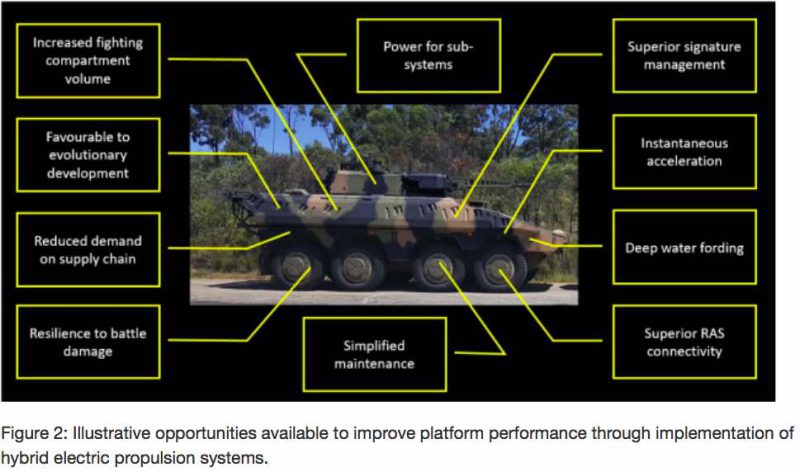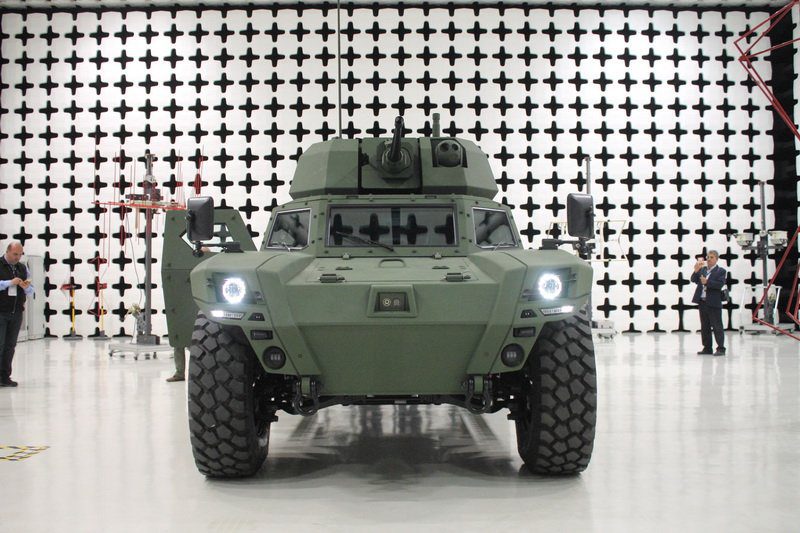Electric cars are seen by many as an opportunity to reduce carbon emissions, escape the tyranny of rising fossil fuel costs and put an end to trips to the petrol station, but one Australian army major says that the opportunity for Australia’s defence forces is mostly pragmatic. And it could save lives.
Major Matthew Wood, a Royal Australian electrical and mechanical engineer currently posted to the Directorate of Land Force Design, Future Land Warfare Branch at Army Headquarters, says it is in the interests of Australia’s defence forces to look at electric and autonomous vehicles.
“The benefits of electric or hybrid vehicle technologies extend well beyond fuel efficiency and offer the organisation, as an Army in Motion, real opportunities to progress objective and future force capabilities,” Woods writes in an article “The future of electric and hybrid technology” on the Australian army website in late August.
Wood says that while Australia’s shift to electromobility has been “pathetically” slow, perhaps due to rational doubts caused by Australia’s distance and geographic isolation, this scepticism could prove counter-productive .
The slow uptake of electric vehicles has the potential to create unfavourable conditions, and with no local car manufacturing industry to speak of Australia, which could find itself in the position of having to pay the high price of too-little-too-late catch ups.
“Change is not always desirable; however, forced change in times not of our choosing is not only undesirable, but potentially chaotic and expensive,” he writes.
But apart from the global shift to EVs, both for economic and climate reasons, Wood notes there are a number of compelling reasons why the army should look to hybrid or electric propulsion systems.
“Hybrid and electric vehicle configurations are inherently more adaptable to evolving technology and innately support sub-system growth,” he writes.
“Conversely, internal combustion engines paired with conventional transmissions are not as adaptable to evolutionary development, and risk pushing vehicle capabilities towards unrecoverable obsolescence.
“The potential of hybrid and electric technology goes well beyond frugality of fuel consumption or relieving pressure on a supply chain.” And he illustrates these examples below.

From the simple conclusion that having no fuel tanks means more space, and more resilience in battle, Wood’s illustration notes the added safety from reduced dependence on a supply chain, and the instant acceleration from battery vehicle.
Maintenance is easier and, yes, it can get wet and ford across water channels.
“As the increasing impacts of climate change bring about the introduction of regulations overseas aimed at reducing carbon emissions overseas, regardless of Australia’s continuing, numerous legacy carmakers are making commitments to transition to electric vehicle technology,” Wood notes.
And he adds, “the collective global momentum created by environmental reform initiatives, legislation, and industry divergence from internal combustion engine technology will shape the ADF’s future force.
“However, this period of change should not be viewed negatively as the end of a golden era, but rather the beginning of a better one, with better capabilities for both the general consumer and the ADF.”
As opposed to internal combustion technology which risks “pushing vehicle capabilities towards unrecoverable obsolescence”, hybrid and electric are more adaptive to new technologies, says Wood.
These include autonomous and robotic systems, and electric vehicles also potentially present “novel methods for harvesting, storing and using energy”. Rising fuel prices and numerous ongoing maintenance costs could be avoided.
“The combination of global legislative pressure, industry disinvestment in internal combustion engine technology, decline in production, changing attitudes and demand may drive the price of fuel very high,” says Wood.

Bridie Schmidt is associate editor for The Driven, sister site of Renew Economy. She has been writing about electric vehicles since 2018, and has a keen interest in the role that zero-emissions transport has to play in sustainability. She has participated in podcasts such as Download This Show with Marc Fennell and Shirtloads of Science with Karl Kruszelnicki and is co-organiser of the Northern Rivers Electric Vehicle Forum. Bridie also owns a Tesla Model Y and has it available for hire on evee.com.au.

